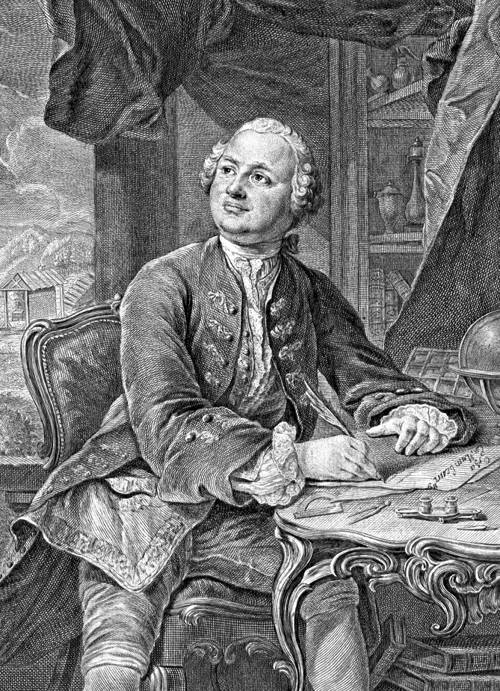
FAQ About Mikhail Lomonosov

Who was Mikhail Lomonosov?
Mikhail Lomonosov was a Russian polymath born in 1711. He was a scientist, writer, and educator, celebrated for his significant contributions to chemistry, physics, astronomy, and linguistics. Lomonosov is also known for founding Moscow University in 1755, which greatly contributed to the advancement of education in Russia.

What are Mikhail Lomonosov's major contributions to science?
Mikhail Lomonosov made substantial contributions to various scientific fields including chemistry, physics, and astronomy. Notably, he advocated for the wave theory of light, discovered the atmosphere of Venus, and formulated the principle of conservation of mass in chemical reactions. His work laid the groundwork for future scientific advancements in Russia and beyond.

How did Mikhail Lomonosov contribute to the field of chemistry?
Lomonosov is often considered the father of Russian chemistry due to his pioneering work in the field. He formulated the law of conservation of mass, which states that matter is neither created nor destroyed in chemical reactions. This principle is fundamental to modern chemistry. He also wrote widely on various chemical processes, striving to integrate physical science into chemical study.

What role did Mikhail Lomonosov play in the founding of Moscow University?
Mikhail Lomonosov was instrumental in the establishment of Moscow University, which was founded in 1755. He envisioned an institution that would promote scientific, liberal, and philosophical education. As one of the founders, he helped shape its curriculum and drive its mission, aiding in the development of higher education in Russia.

Why is Mikhail Lomonosov considered a polymath?
Lomonosov is considered a polymath because he excelled in multiple fields including science, literature, and linguistics. He was a pioneer in chemistry and physics, a poet and writer, and he contributed to educational reforms. His ability to integrate knowledge from diverse areas into a cohesive framework exemplifies the qualities of a polymath.

What was Mikhail Lomonosov's role in linguistics and literature?
In linguistics, Mikhail Lomonosov made seminal contributions with his development of Russian grammar and his efforts to standardize the Russian language. In literature, he was an accomplished poet and writer, influencing Russian literary traditions by introducing new poetic forms and styles, enriched with scientific and philosophical themes.

What were some novels or poetry works written by Mikhail Lomonosov?
Lomonosov's literary works include notable poems such as 'Ode on the Day of the Ascension of Her Imperial Majesty Elizaveta Petrovna' and 'A Morning Meditation on God's Greatness.' His poetry often infused classical Russian themes with elements from scientific and philosophical discourses.

What is the significance of Mikhail Lomonosov's discovery of Venus' atmosphere?
During his observations of the transit of Venus across the Sun in 1761, Lomonosov noted a halo of light around Venus, leading to the discovery of its atmosphere. This was a significant contribution to astronomy as it was one of the first pieces of evidence of an extraterrestrial atmosphere, expanding the understanding of planetary science.

How did Mikhail Lomonosov influence Russian education?
Lomonosov's contributions to Russian education were profound. By founding Moscow University, he set a high standard for educational excellence in Russia. He also worked on curricular development, advocated for the integration of scientific research into academic study, and emphasized the importance of education in Russian for national development.

Did Mikhail Lomonosov face any challenges during his career?
Lomonosov faced numerous challenges during his career, including limited resources and opposition from traditionalists who resisted his scientific and educational reforms. His efforts to introduce Western scientific methods into Russian academia were met with skepticism by some, but his perseverance led to significant advancements in Russian science and education.

Where was Mikhail Lomonosov born?
Mikhail Lomonosov was born in the village of Denisovka in the Archangelgorod Governorate, which is now part of the Vologda Oblast in Russia. His humble beginnings did not deter him from becoming one of Russia's most celebrated scholars.

What is Mikhail Lomonosov's legacy today?
Lomonosov's legacy is vast, impacting science, literature, and education. His interdisciplinary approach set a standard for scientific research and education in Russia. Moscow University, now known as Lomonosov Moscow State University, stands as a testament to his contributions. His work continues to inspire new generations of scientists and scholars.

Was Mikhail Lomonosov involved in politics?
While not primarily known as a politician, Lomonosov was involved in political discourse, particularly concerning educational reforms and scientific advancement. He often advocated for the modernization of Russia through education and scientific development, which required navigating the political landscape of his time.

How did Mikhail Lomonosov approach scientific research?
Lomonosov approached scientific research with a focus on empirical evidence and experimentation, much aligned with Enlightenment principles. He emphasized the importance of observation and theory working hand-in-hand, and he advocated for the practical applications of scientific discoveries to improve society.

What was Mikhail Lomonosov's educational background?
Lomonosov began his education in Russian Orthodox schools before moving to Moscow, where he entered the Zaikonospassky Academy. He later studied at the University of Marburg in Germany, which broadened his scientific and philosophical education and exposed him to contemporary Enlightenment thought.

What were Mikhail Lomonosov's views on the integration of different scientific disciplines?
Lomonosov was a proponent of integrating various scientific disciplines, believing that knowledge should not be isolated into separate fields. He proposed that the natural sciences be combined with the humanities to enhance the understanding and application of scientific knowledge, a view that was quite advanced for his time.

Did Mikhail Lomonosov have any notable students or successors?
Lomonosov's influence on Russian education and science meant that many of his contemporaries and future students were inspired by his work, although specific notable students of his are not well-documented. His legacy at Moscow University, however, nurtured significant scientific minds who carried forward his interdisciplinary approach.

What are some common misconceptions about Mikhail Lomonosov?
One common misconception is that Lomonosov's work was solely in the arts or sciences when in fact his contributions effectively bridged both areas. Another misconception is the understanding of his contributions to the Russian Enlightenment, which were groundbreaking in promoting Western scientific ideas in Russia.

How did Mikhail Lomonosov's work contribute to the Russian Enlightenment?
Lomonosov played a critical role in the Russian Enlightenment by promoting scientific inquiry, education in the vernacular, and the incorporation of Western scientific methodologies. His efforts helped transition Russian academia towards a modern scientific framework, aligned with Enlightenment values of reason, empirical evidence, and education.

Are there any scientific principles named after Mikhail Lomonosov?
While there isn't a scientific principle explicitly named after Lomonosov, his contributions, particularly the law of conservation of mass in chemistry and his observations in astronomy, continue to bear influence. He's widely credited with laying the foundation for future scientific principles and discoveries in Russia.
